Show Betta Salamander BF HMPK 18062402 Anak Junior Potential for Comp
RM49.00
In stock
Show Betta Salamander BF HMPK 18062402

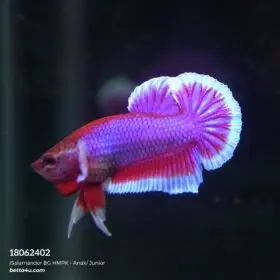

The world of betta fish is vast and vibrant, with each variant offering unique beauty and personality. Among these, the Show Betta Salamander BF HMPK 18062402 stands out as a particularly stunning example. This article delves into everything you need to know about this specific betta fish, from its appearance and care requirements to breeding tips and common challenges.
@48betta4ucom #showbetta2024 #salamanderbf #melakaaquaticarena #RancakRaya
Introduction
Betta fish, also known as Siamese fighting fish, are beloved by aquarium enthusiasts for their vivid colors and spirited personalities. The Show Betta Salamander BF HMPK 18062402 is a variant that captures the attention of many due to its striking appearance and impressive lineage. Whether you’re a seasoned aquarist or a newcomer to the world of bettas, understanding the specific needs and characteristics of this fish will ensure a healthy and happy life for your aquatic friend.
Appearance and Characteristics
The Show Betta Salamander BF HMPK 18062402 is renowned for its unique coloration and form. The term “Salamander” refers to its beautiful blend of purples, blues, and reds, often highlighted with iridescent scales that catch the light in a mesmerizing display. The “BF” stands for “Big Fins,” indicating the exaggerated and elegant fin structure that this betta exhibits. “HMPK” denotes the Halfmoon Plakat variety, which is characterized by a 180-degree tail spread and a more compact, robust body compared to traditional long-finned bettas.
This betta’s appeal lies not just in its colors but in the grace and vigor it displays. The HMPK variant is particularly noted for its active swimming behavior and aggressive, yet captivating, display when interacting with its surroundings or other fish.
Care Requirements
Proper care for the Show Betta Salamander BF HMPK 18062402 involves several key aspects: tank setup, water conditions, feeding, and health monitoring.
Tank Setup
A minimum tank size of 5 gallons is recommended for this betta, though larger is always better. The tank should be equipped with a gentle filter to maintain water quality without creating strong currents that could stress the fish. Live plants, such as java fern and anubias, not only enhance the tank’s aesthetic appeal but also provide hiding spots and resting areas for the betta. Ensure the tank has a secure lid, as bettas are known to be jumpers.
Water Conditions
Maintaining optimal water conditions is crucial. The water temperature should be kept between 76-82°F (24-28°C), with a pH level of 6.5 to 7.5. Regular water changes, typically 25-30% weekly, are essential to keep ammonia, nitrite, and nitrate levels in check. Using a water conditioner to remove chlorine and other harmful chemicals from tap water is also recommended.
Feeding
Bettas are carnivorous fish, and their diet should reflect their natural dietary preferences. High-quality betta pellets should form the staple of their diet, supplemented with live or frozen foods like brine shrimp, daphnia, and bloodworms. It’s important to feed them in small amounts twice daily, ensuring they consume the food within two minutes to prevent overfeeding and water pollution.
Health Monitoring
Regular observation is key to maintaining the health of your Show Betta Salamander BF HMPK 18062402. Watch for signs of common diseases such as fin rot, ich, and velvet. Early detection and treatment are crucial, and maintaining pristine water conditions helps prevent many health issues. It’s also beneficial to quarantine new fish or plants before adding them to your betta’s tank to avoid introducing pathogens.
Breeding Tips
Breeding bettas, particularly show-quality ones like the Salamander BF HMPK, can be both challenging and rewarding. Here are some tips to help you get started:
Selecting Breeding Pairs
Choose a healthy male and female with desirable traits. The male Show Betta Salamander BF HMPK 18062402 should display vibrant colors and strong fins, while the female should be healthy and of a compatible size.
Conditioning
Condition both fish for breeding by feeding them a high-protein diet for about two weeks. Live or frozen foods are particularly beneficial during this period.
Breeding Tank Setup
Set up a separate breeding tank with shallow water (about 5 inches deep), a gentle filter, and a heater to maintain the temperature around 78-80°F. Provide hiding spots for the female, such as plants or breeding cones, to protect her from the male’s aggression.
Introducing the Pair
Introduce the male to the breeding tank first. After a day or two, place the female in a transparent container within the tank, allowing the male to see her without direct contact. This helps stimulate courtship behavior. Once the male builds a bubble nest and both fish display readiness (flaring and bright colors), release the female.
Spawning
Spawning typically involves an elaborate courtship display, with the male wrapping himself around the female to release and fertilize the eggs. After spawning, the male collects the eggs and places them in the bubble nest. Remove the female immediately after spawning to prevent aggression from the male.
Raising Fry
The male will care for the eggs and newly hatched fry. Once the fry are free-swimming (after about 3-5 days), remove the male to prevent him from eating the fry. Start feeding the fry with infusoria or commercial fry food, gradually introducing baby brine shrimp as they grow.
Common Challenges
Despite their hardiness, Show Betta Salamander BF HMPK 18062402 bettas can face several challenges. Here are some common issues and how to address them:
Aggression
Bettas are naturally aggressive, particularly males. It’s essential to house them individually or with carefully selected tank mates that won’t provoke them. Avoid housing two males together or placing them with species that have long, flowing fins, which can be mistaken for another betta.
Fin Rot
Fin rot is a bacterial infection that can be prevented through regular water changes and maintaining clean water conditions. If fin rot occurs, treat with appropriate aquarium antibiotics and improve water quality.
Overfeeding
Overfeeding can lead to bloating and poor water quality. Stick to a regular feeding schedule and remove any uneaten food promptly.
Temperature Fluctuations
Bettas are sensitive to temperature changes, which can stress them and make them susceptible to disease. Use a reliable heater and thermometer to maintain a stable temperature within the recommended range.
Conclusion
Caring for the Show Betta Salamander BF HMPK 18062402 is a rewarding experience that offers the chance to appreciate the beauty and complexity of this remarkable fish. By understanding their specific needs and addressing common challenges, you can ensure a healthy and vibrant life for your betta. Whether you’re drawn to their stunning colors, elegant fins, or lively personalities, these bettas make a captivating addition to any aquarium.
FAQs
How often should I feed my Show Betta Salamander BF HMPK 18062402?
Feed your betta small amounts twice daily, ensuring the food is consumed within two minutes to prevent overfeeding.
What tank size is best for a Show Betta Salamander BF HMPK 18062402?
A minimum of 5 gallons is recommended, though larger tanks provide a better environment for swimming and growth.
Can I keep my betta with other fish?
While bettas can be kept with certain tank mates, it’s essential to choose species that won’t provoke aggression or compete for food.
What are common signs of illness in bettas?
Watch for symptoms like clamped fins, white spots, lethargy, or changes in appetite. Early detection and treatment are crucial for recovery.
How do I maintain water quality in my betta tank?
Perform regular water changes, use a gentle filter, and monitor water parameters to keep ammonia, nitrite, and nitrate levels low.
What should I do if my betta appears stressed?
Check water conditions, ensure a stable temperature, and provide hiding spots. Avoid sudden changes in the environment to reduce stress.
| Weight | 0.3 kg |
|---|---|
| Dimensions | 10 × 15 × 10 cm |
Only logged in customers who have purchased this product may leave a review.
Related products
Hybrid & Wild Betta Fish
Hybrid & Wild Betta Fish
Hybrid & Wild Betta Fish
Betta Albimarginata Pair – Sleek, Rare & Mouthbrooding Marvels for Soft-Water Aquariums
Show Betta Fish
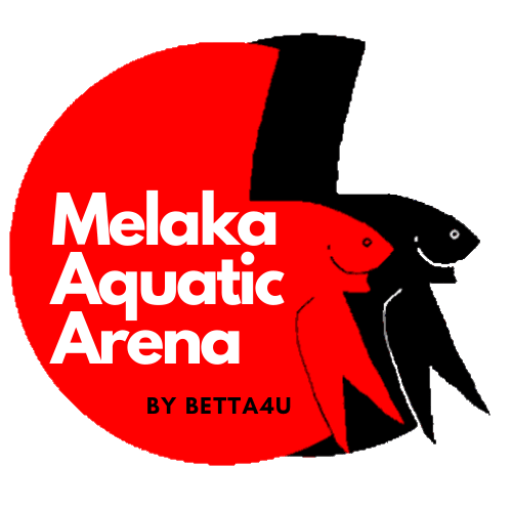





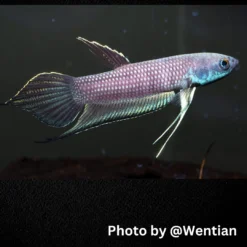
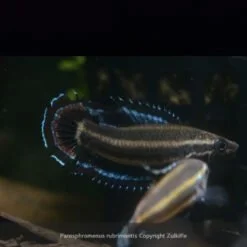
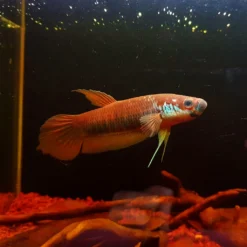




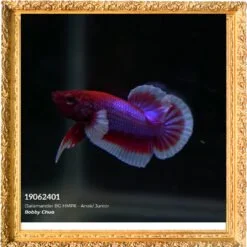



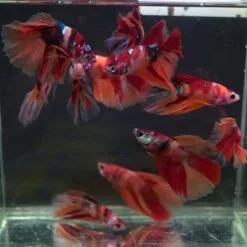

Reviews
There are no reviews yet.